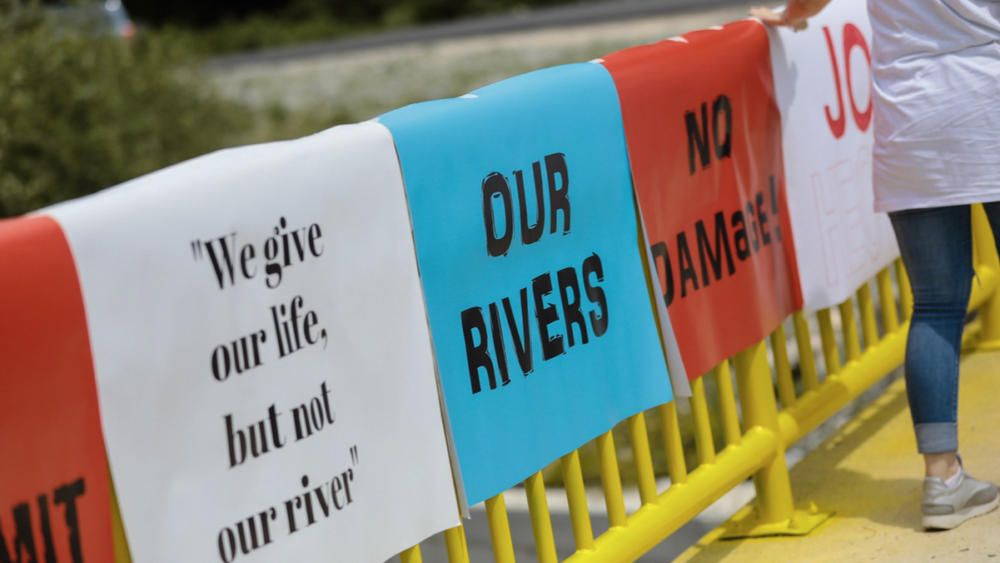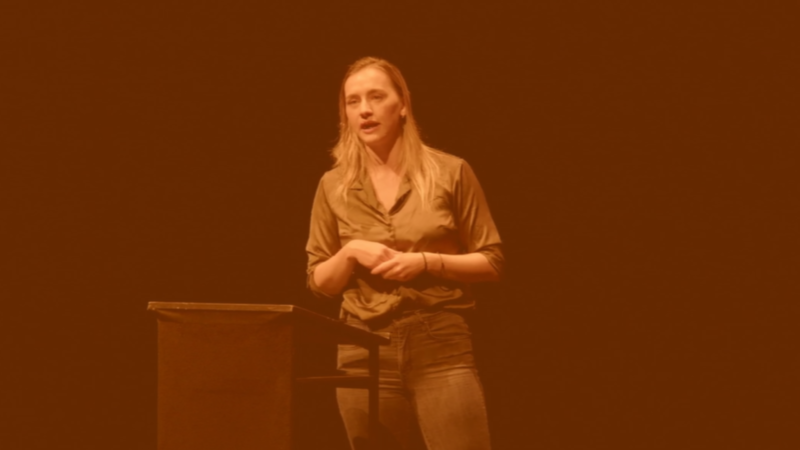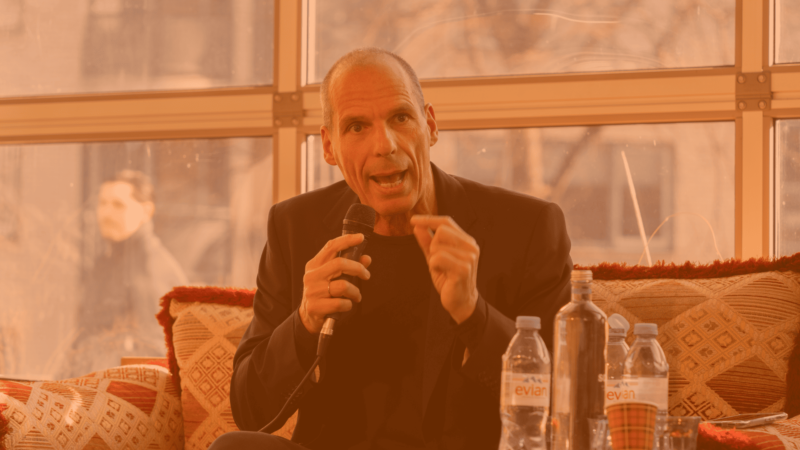Neoliberalism is showing its real, brutal face in Serbia. Scandalous privatizations of companies that were previously public or state-owned started back in 1990 and erupted after 2000, during the period of post-socialist transition. Now Serbia has a new problem – its basic natural resources and people’s homes are under the attack of private businesses, multinationals, government officials and their cronies.
Foreign companies have over 90 percent of water springs under concessions in Serbia, one of the 50 countries in the world with the largest water reserves. Pravo na vodu (Right To Water) is the main initiative gathering individuals and organizations such as Levi samit Srbije (The Left Summit of Serbia), Sedam zahteva (Seven Demands) and Socijaldemokratska unija (Social-Democratic Union) under its umbrella. They are committed to fight for the right of Serbian citizens to have water as a public good which cannot be taken away or privatized.
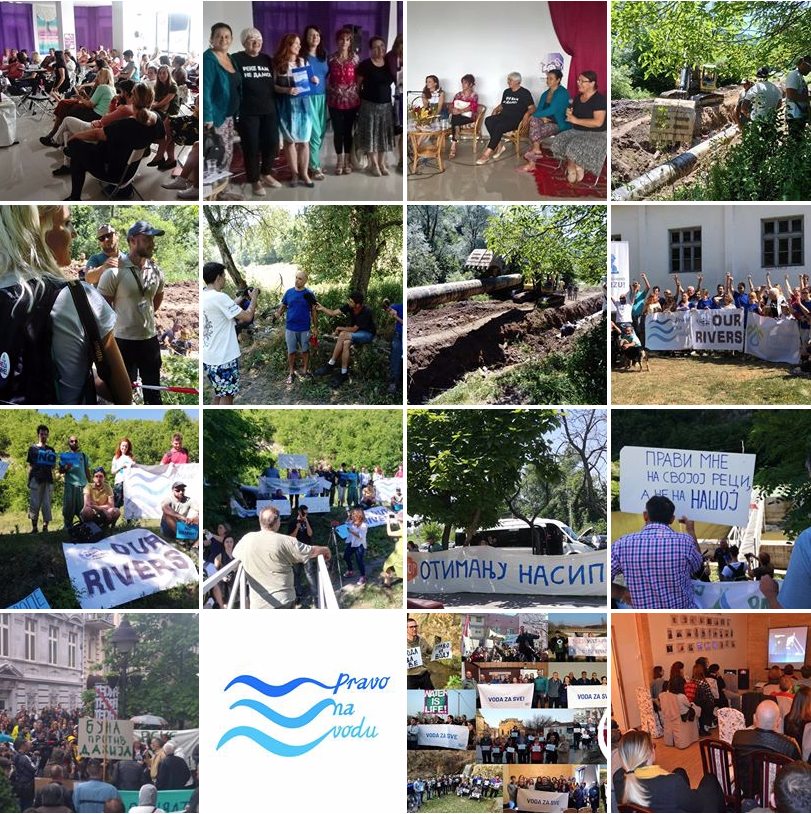
To make things worse, concessions were given to private investors for small hydropower plants. In the process, rivers and streams are drained, ecosystems ruined, and the result of this deal is not more than 2 percent of national electricity production. Citizens gathered around the initiative Odbranimo reke Stare planine (Defend the Rivers of Stara planina) and local populations are fighting to protect rivers, streams, and waterfalls of mountains in South-Eastern Serbia from being ruined by big businesses and try to protect their nature with protests and blockades. Some of the protestors who were facing a brutal force of private investors’ thugs are 80 to 90 years old women living in endangered villages.
Not on our watch!
So, once the water is privatized, vast agricultural land is sold for small money, and mines with many precious minerals and metals are bartered away to foreign capitalists, there is one more thing to do – throw citizens of Serbia out of their homes. Unlike many European countries, in 2017, Serbia had only about 600.000 tenants which is less than 10 percent of the population. The vast majority of citizens (still) own their flats and houses or share their homes with their families. But if we look at the process of forced evictions in the past seven years, that could soon no longer be the case.
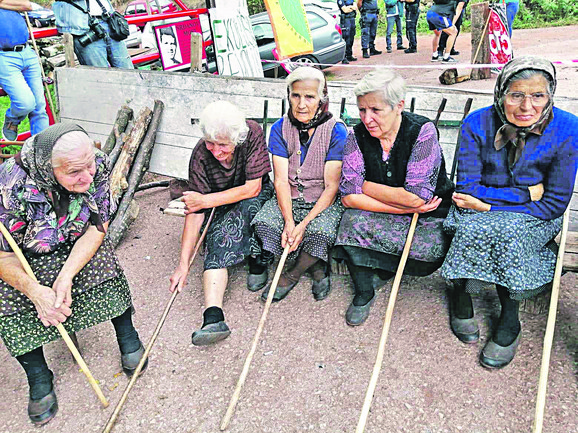
There is no doubt that these expropriated homes will be used to either become homes of the nouveau riche or rented to those who are not short of cash, be they members of the thin upper crust of society or foreign businessmen. More than 3000 expropriations of real estates, mostly private homes, happened within the last seven years, sometimes for smaller debts or unpaid bills for electricity or gas in this country with third world incomes and growing private liabilities. Banks, the domestic judicial system, police and private bailiffs with their “security experts” hired by private companies are kicking out families, in most cases retired citizens, single mothers, impoverished workers or refugees from the 1990s wars in Yugoslavia. Private bailiffs who have the monopoly over evictions have the support from the regime. They are doing this for personal gain, often selling properties below the market value to their network of contacts.
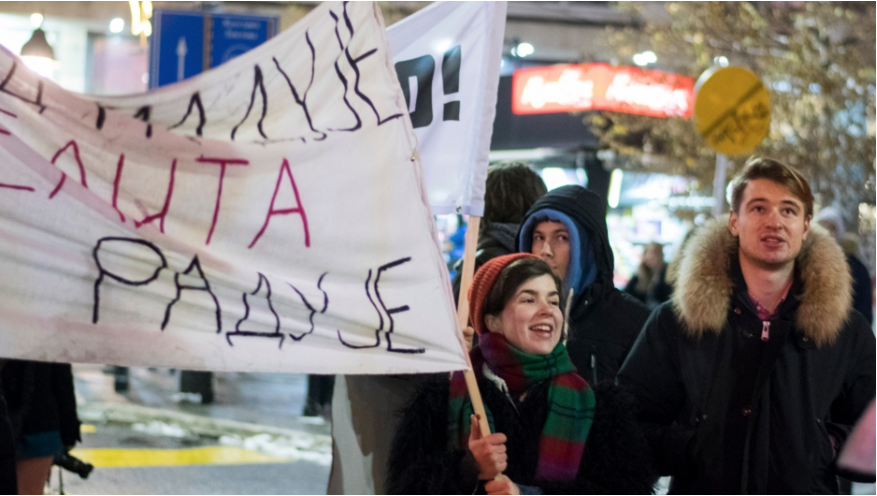
Yet, the initiative Združena akcija Krov nad glavom (Collective Action Roof Over the Head) is the one true force fighting for the rights of the downtrodden. Its members are often also members of progressive and left-wing organizations and parties such as Socijaldemokratska unija, Sedam zahteva, Ne davimo Beograd, Marks 21, Levi samit Srbije and DiEM25 Belgrade. The Roof has managed to raise awareness of the problem not only by legal actions, protests, petitions, and contacts with the press but also through physically defending those whose homes are threatened by the executors and the police. Threats of Serbian regime such as fines, arrests and evenprison sentences do not scare this brave team of people away from fighting for the basic rights of every human being to have a roof over their head.
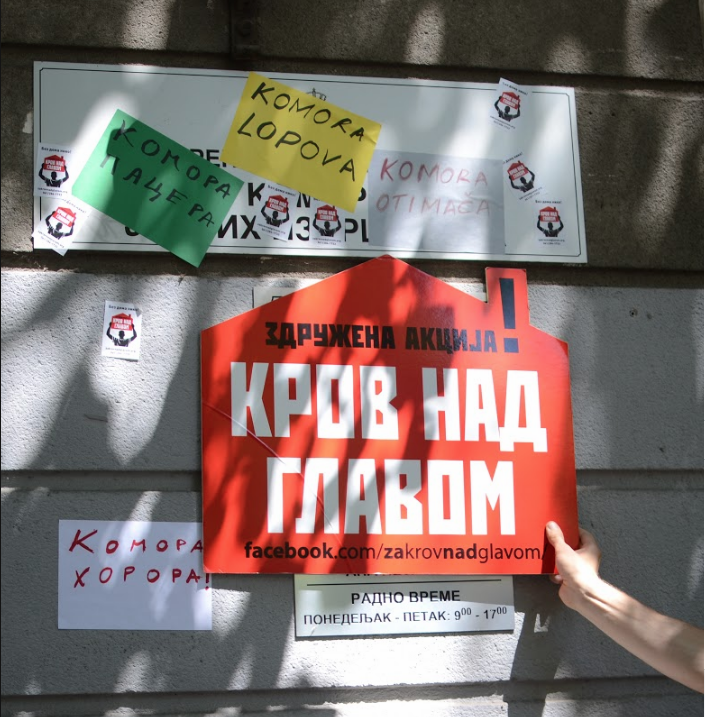
It is just a matter of time when all these struggles for water, healthy environment, jobs and homes will become one single common fight for the first amendment of the Serbian constitution: “The Republic of Serbia is based on the rule of law and social justice”.
And it comes with a message to all our European comrades: If you tolerate this then your country will be next!
Aleksandar Novaković is a historian, dramatist and member of DSC Belgrade 1
Picture above: Balkan Rivers action week in July, 2019. Photo by „Save the Blue Heart of Europe“
Do you want to be informed of DiEM25's actions? Sign up here





